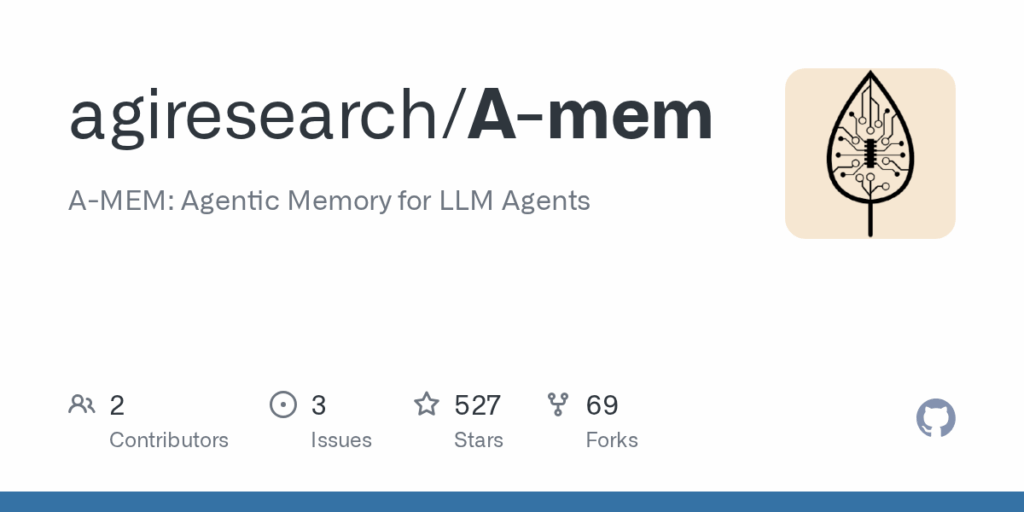A mem
Basic Information
A-mem implements an agentic memory system designed to be integrated into LLM agent pipelines to store, index, link and evolve past experiences so agents can reason over history and externalize knowledge. The repository provides a Python package and example usage showing how to add, read, search, update and delete structured notes, how memories are represented with metadata and contextual descriptions, and how the system performs semantic linking and continual refinement. It is intended as infrastructure to help researchers and developers build agents with more advanced long-term memory capabilities rather than a standalone end-user application. The README references a companion paper and experimental results comparing performance across foundation models and indicates the system uses embedding models and vector storage to enable fast semantic retrieval.








